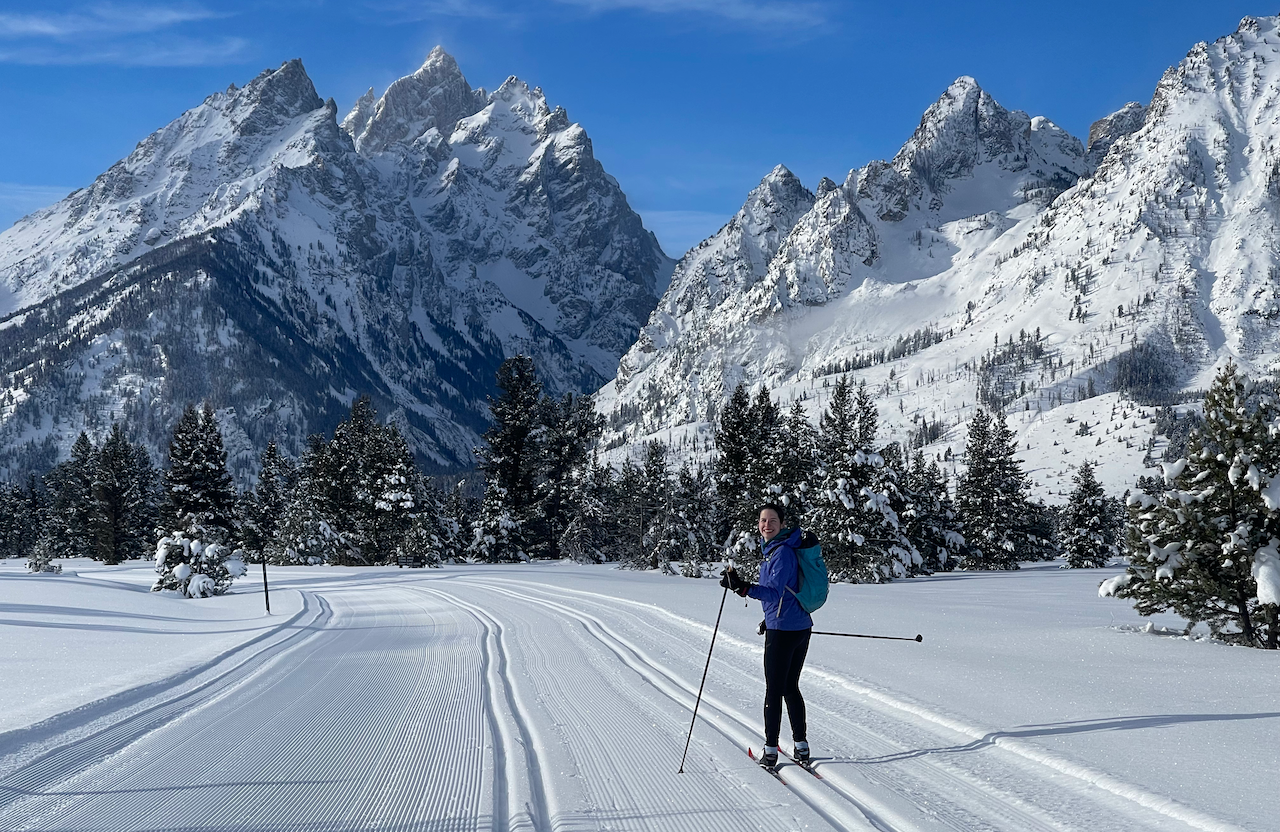About
Welcome! I am an environmental economist working on applied microeconomic and interdisciplinary research related to climate change, climate adaptation, and plastic pollution. I use remote sensing and non-traditional data in a lot of my projects.
I am currently a postdoc at MIT at the Department of Economics and the Schwarzman College of Computing’s Social and Ethical Responsibilities of Computing (SERC). I will join the Bren School at UC Santa Barbara as an Assistant Professor in July 2026.
I got my PhD in Sustainable Development at Columbia University’s School of International and Public Affairs.
CV (Updated November 2025)
Email: annapapp@mit.edu
BlueSky: @annapappp.bsky.social

Working Papers
(with Florian Grosset-Touba, Charles Taylor)
R&R at Review of Economic Studies
Abstract (click to expand): Human actions can alter the regional climate, particularly via land use. We analyze the Great Plains Shelterbelt, a large-scale forestation program in the 1930s across the US Midwest. This program led to a decades-long increase in precipitation and decrease in temperature. Changes extended to adjacent unforested land up to 200km away - enabling us to directly study climate adaptation. In downwind places facing improved growing conditions, farmers expanded corn acreage and switched to more water-intensive production. This paper highlights the endogeneity of the climate to land use changes, and the potential for tree planting to regionally mitigate climate change impacts.
Available on SSRN
Selected Coverage:
CEPR VoxTalks Podcast,
World Resources Institute
Abstract (click to expand): This paper provides the first causal evidence that gig economy platforms enable consumer adaptation to climate change while shifting climate-related damages to workers. Across diverse markets and climates (UK, Germany, France, and Mexico), I leverage detailed transaction data and labor force surveys and exploit exogenous variation in daily maximum temperatures. On hot days relative to moderate days, I find an 8-16% increase in food delivery expenditures and a similar decline in dine-in restaurant spending, driven primarily by higher-income consumers. On these days, food delivery workers work 1.7 hours more on average, exposing them to material health risks. Yet, I find that their hourly wages do not increase, despite the flexibility of wages in this setting. This response to heat is unique to platform-based work. I show that worker beliefs are the main mechanism: platform workers believe that declining tasks - particularly during periods of peak demand such as hot days - deprioritizes them for future work. My findings raise broader questions about algorithmic fairness and highlight environmental equity concerns from unequal access to climate adaptation.
Publications
(with Danny Bressler, Luis Sarmiento, Jeffrey Shrader, Andrew Wilson)
Accepted at Journal of Human Resources
Abstract (click to expand): We investigate how occupation influences the relationship between temperature and mortality in Mexico. Using multiple decades of nationwide death records---which include information on occupation---linked to local weather data, we find that heat-related mortality risk varies sharply by occupation. Young adults in climate-exposed jobs, especially in agriculture, experience significantly higher death rates from warm and hot temperatures. A 15 to 24 year-old agricultural worker is over 10 times more likely to die from heat exposure than a peer in professional or managerial employment, underscoring the role of occupation in climate vulnerability. These findings evince that the burden of extreme heat disproportionately falls on the working poor. Our results suggest that implementing occupational safety measures and targeted heat adaptation policies (such as mandatory rest breaks and early warnings for outdoor workers) are essential to protect vulnerable workers. Furthermore, ongoing economic shifts away from highly exposed sectors may reduce increases in heat-related mortality due to climate change.
Available as IZA Discussion Paper No. 17759
(with Kimberly L. Oremus)
Science (2025)
Abstract (click to expand): Plastic pollution threatens marine and freshwater ecosystems and the services they provide. While plastic bag bans and taxes are increasingly implemented worldwide, their effectiveness in reducing plastic litter remains unknown. Leveraging the patchwork of bag policies across different geographic scales in the United States and citizen science data on 45,067 shoreline cleanups, we assess the impact of these policies on plastic bag litter. We find that plastic bag policies lead to a 25-47% decrease in plastic bags as a share of total items collected at cleanups relative to areas without policies, with taxes possibly further reducing shoreline litter. At a time when many jurisdictions are considering bag policies while others are preemptively prohibiting them, our study provides evidence that they mitigate shoreline plastic pollution.
Selected Coverage:
New York Times,
Washington Post,
CBS News,
Grist,
Popular Science,
Scientific American,
Time,
CNN
(with Douglas Almond, Shuang Zhang)
Journal of Public Economics (2023)
Abstract (click to expand): Environmental externalities from cryptomining may be large, but have not been linked causally to mining incentives. We exploit daily variation in Bitcoin price as a natural experiment for an 86 megawatt waste coal-fired power plant with on-site cryptomining. We find that carbon emissions respond swiftly to mining incentives, with price elasticities of 0.69–0.71 in the short-run and 0.33–0.40 in the longer run. A $1 increase in Bitcoin price leads to $3.11–$6.79 in external damages from carbon emissions alone, well exceeding cryptomining’s value added (using a $190 social cost of carbon, but ignoring increased local air pollution). As cryptomining requires ever more computing power to mine a given number of blocks, our study highlights both the revitalization of US fossil assets and the need for financial industry accounting to incorporate cryptomining externalities.
Selected Coverage:
Berkeley Energy Institute Blog,
The Washington Examiner
(with Douglas Almond, Xinming Du)
Nature Climate Change (2022)
Abstract (click to expand): Methane is 28 to 86 times more potent as a driver of global warming than CO2. Global methane concentrations have increased at an accelerating rate since 2004, yet the role of fossil fuels and revitalized natural gas extraction and distribution in accelerating methane concentrations is poorly recognized. Here we examine the policy positioning of university-based energy centres towards natural gas, given their growing influence on climate discourse. We conducted sentiment analysis using a lexicon- and rule-based sentiment scoring tool on 1,168,194 sentences in 1,706 reports from 26 universities, some of which receive their primary funding from the natural gas industry. We found that fossil-funded centres are more favourable in their reports towards natural gas than towards renewable energy, and tweets are more favourable when they mention funders by name. Centres less dependent on fossil funding show a reversed pattern with more neutral sentiment towards gas, and favour solar and hydro power.
Selected Coverage:
The Guardian,
Der Spiegel,
The Times Higher Education,
Inside Higher Ed
Work in Progress
Pollution, plastics, and the global trade in garbage
(with Matthew Gordon)
Funding: STEG Initiative at CEPR, Minderoo Foundation
Abstract (click to expand): What are the impacts of the global trade in plastic waste? Since a 1991 World Bank memo argued, “the economic logic behind dumping a load of toxic waste in the lowest wage country is impeccable” cross country flows of plastic waste have increased seven-fold. Yet the consequences of this trade are poorly understood, partially due to the lack of basic descriptive data about what happens to exported waste at its many destinations. Using satellite data and a machine-learning algorithm trained on crowd-sourced data, we study the spread of informal dumps before and after a major shock to the global trade in waste. Our preliminary findings show that the dumps create severe externalities, while the benefits to jobs and wages appear modest.
Academic Presentations
2026: ASSA Annual Meeting

Teaching
Causal Inference Workshop
I taught the Causal Inference Workshop for PhD Students in Sustainable Development in Spring 2024. You can find materials for it here.
Other Teaching at SIPA
Instructor (Master’s), Analytics in Env. Science Policy [Summer 2020,2021]
Teaching Fellow (Master’s), Microeconomics & Public Policy II [Spring 2021]
Teaching Fellow (Master’s), Economic Development [Fall 2020]

Miscellaneous
Code: To work through (some of) the new two-way fixed effects/dynamic diff-in-diff methods, my grad school colleague Vincent Bagilet and I have put together set of simulations, example datasets, and code (as part of Jeffrey Shrader’s lab), which you can find here.
Non-academic interests: I grew up in Budapest, Hungary. In my free time I enjoy hiking, camping, packrafting (check out my trip reports here), vegan food, and my favorite boardgame.
Website: This website design is based on Gautam Rao’s GitHub repository. Thank you Gautam for making it public! Images: Blackstone Bay from Vista Hike; View from Matanuska Peak; Denali from Kesugi Ridge (on a very clear day!); Teton Park Road in the winter.





